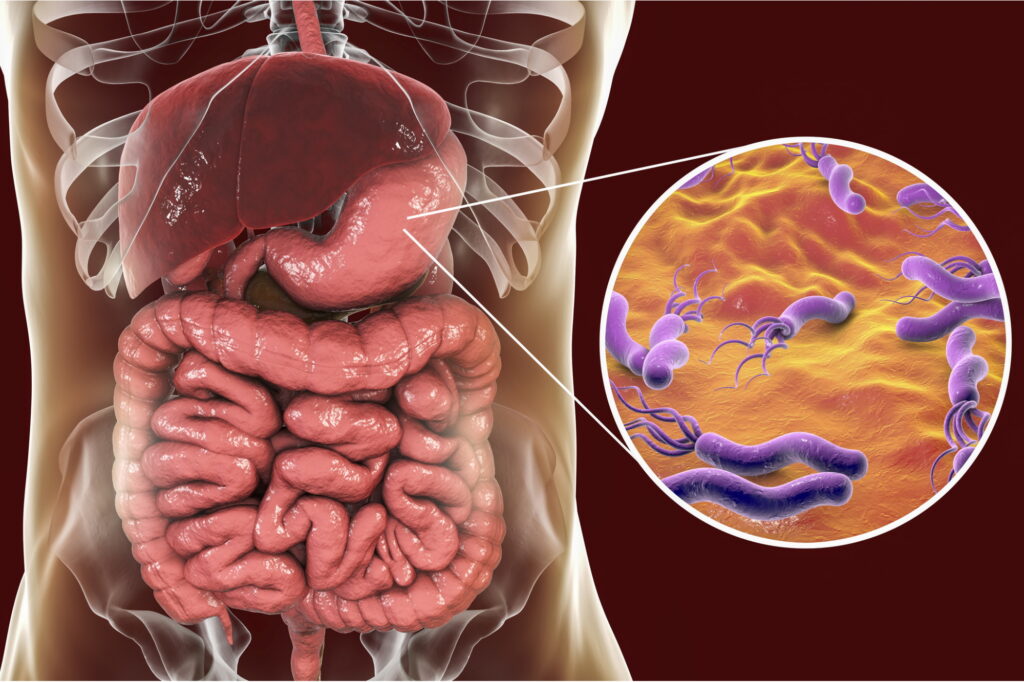Stomach cancer, or gastric cancer, is one of the most prevalent cancers of the digestive system, particularly in Southern Asia. Although it constitutes about 9% of all digestive cancers globally, the incidence in India remains relatively low, especially when compared to other Asian nations such as Japan, Korea, and China, where the disease is more common. Despite the high rates of Helicobacter Pylori (H. Pylori) infection in India, the correlation between this infection and gastric cancer is not fully understood, and the relatively lower incidence in the country remains a topic for further research.
Key Factors Contributing to Stomach Cancer
There are several well-established risk factors for gastric cancer, including genetic susceptibility, high salt consumption, alcohol, tobacco use, and H. Pylori infection. Pickled foods and salted dried fish are also commonly linked to a higher risk. However, India’s lower incidence of gastric cancer, despite the high prevalence of H. Pylori, remains puzzling. Research is ongoing to understand what specific factors might provide protection, helping to prevent the development of cancer even in individuals with H. Pylori infection.
Early Diagnosis and Screening Methods
Detecting gastric cancer early is crucial to improving treatment outcomes. Early detection is often difficult due to the vague nature of symptoms like upper abdominal pain, discomfort, early satiety, and unexplained weight loss. If these symptoms persist, an upper gastrointestinal (GI) endoscopy should be performed. Endoscopy with advanced technologies like high-resolution imaging and virtual chromoendoscopy allows for better identification of early-stage gastric cancer. Endoscopic ultrasound (EUS) is another useful tool in staging the disease, particularly in advanced stages, providing a clear picture for effective treatment planning.
Gastric Cancer in India: Challenges and Treatment
In India, most gastric cancer cases are diagnosed in the later stages, primarily due to a lack of awareness and screening programs. Treatment varies depending on the stage of the cancer, with chemotherapy often used for advanced cases either before or after surgery. Some patients diagnosed in stage IV may require palliative care, such as endoscopic stent placement or feeding tube insertion if surgery is not an option. Early-stage gastric cancer, however, can be managed effectively through less invasive techniques like Endoscopic Mucosal Resection (EMR) and Endoscopic Submucosal Dissection (ESD).
The survival rate for gastric cancer is approximately 20% over five years, though countries with established screening programs report higher survival rates due to earlier detection, especially in cases where the cancer is localized.
Diet and Prevention
Diet plays a significant role in the development of gastric cancer. A diet rich in vegetables, especially green, yellow, cruciferous vegetables, and garlic, is thought to have protective effects. The decline in stomach cancer cases in several countries has been linked to increased fruit consumption and reduced intake of salt and preserved foods. As these dietary changes become more widespread, the incidence of stomach cancer is expected to decline.
In countries like Japan and Korea, advancements in screening and endoscopic technology have improved early detection and treatment. These technologies have enabled early-stage gastric cancers to be removed via endoscopy, reducing the need for more invasive surgeries.
The Future of Gastric Cancer Detection
Recent developments in diagnostic methods, such as liquid biopsies and genetic screening, are offering promising prospects for early detection. These innovations could allow healthcare providers to identify individuals at high risk for gastric cancer, enabling timely intervention and treatment. Furthermore, advancements in Artificial Intelligence (AI) are enhancing the accuracy and efficiency of endoscopic procedures, improving detection, diagnosis, and staging.
Conclusion
Gastric cancer is a significant health concern, but advancements in technology and early detection methods are improving outcomes worldwide. Understanding the role of diet and lifestyle choices, along with the continued evolution of diagnostic techniques, provides hope for better management and prevention of the disease.
Important Note: Before making any significant changes to your health, it is always advisable to consult with your doctor or healthcare professional. They can offer personalized guidance based on your medical history and current health condition.
For any health-related concerns, please contact us at +91-9058577992 to receive a free consultation from our experienced doctors. Your health is our top priority. Thank you.

